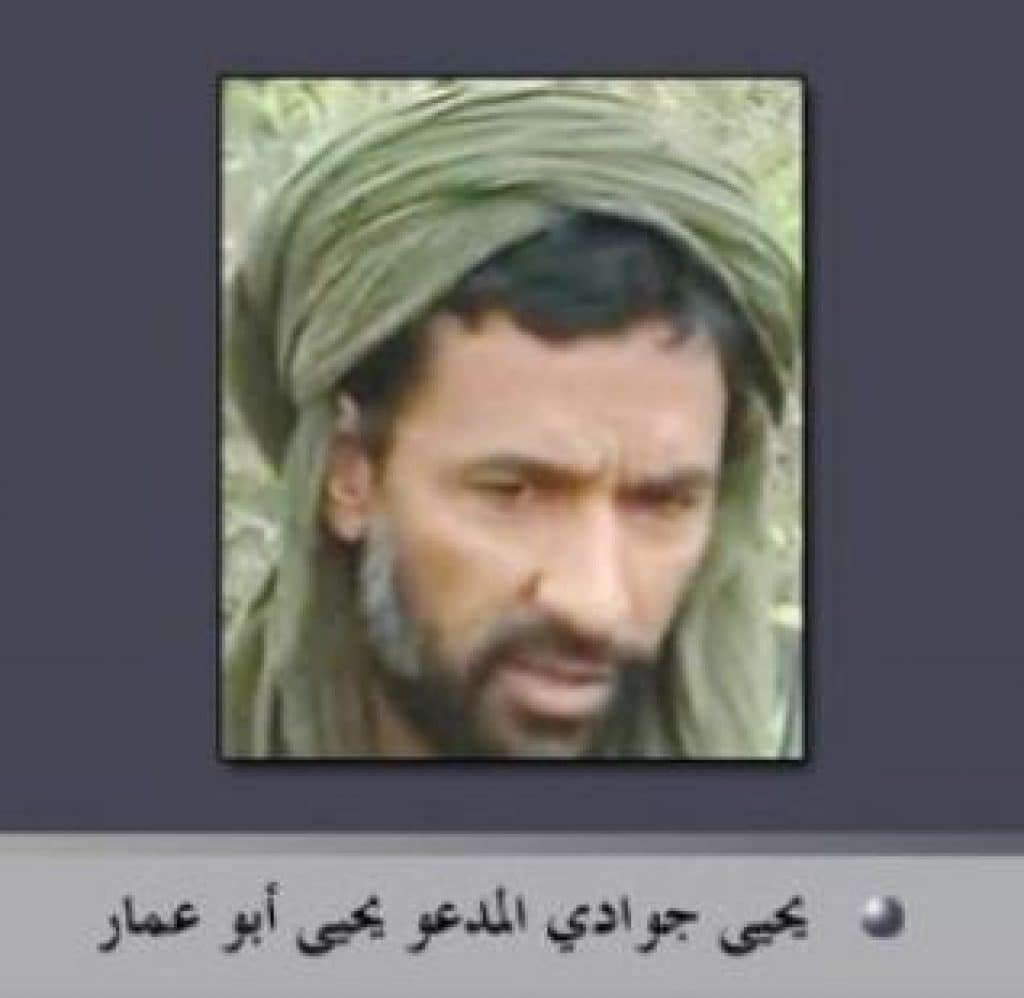
Earlier today, the French military reported its forces as part of Operation Barkhane, its counterterrorism mission in the Sahel, killed a veteran al Qaeda fighter inside northern Mali last week.
France said a ground operation, supported by helicopters and drones, on the night of February 25 succeeded in “neutralizing” Yahia Djouadi, who is also known as Abu Ammar al Jaza’iri. Djouadi was a veteran Algerian member of the upper echelons of Al Qaeda in the Islamic Maghreb (AQIM).
Al Qaeda has not commented on the reports of Djouadi’s death as of the time of publishing.
According to France’s Ministry of Armed Forces, Djouadi was reportedly killed 100km north of Mali’s Timbuktu in a “refuge for members” of al Qaeda’s Group for Support of Islam and Muslims (JNIM) in the country’s northern deserts. JNIM is a branch of AQIM and al Qaeda’s official wing in the Sahel and wider West Africa.
France and its various European allies are set to withdraw from Mali following a severe diplomatic row between the ruling junta of Mali and the European states, particularly France. The security forces are to redeploy across the Sahel, leaving unanswered questions regarding the security of Mali.
Last week’s raid deep within Timbuktu’s desert may provide a template for the future of unilateral French counter-terrorism operations moving forward. Paris may also attempt to use the raid on Djouadi to show Mali’s ruling junta the advantages of having French troops remain.
Djouadi’s Long History of Jihad
Providing background on Djouadi’s history, the French military reports that the jihadist originally joined the Armed Islamic Group (GIA) in Algeria in 1994 before continuing the jihad with the GIA’s splinter group the Salafist Group for Preaching and Combat (GSPC) in 1998.
The GSPC would later be officially welcomed into al Qaeda’s global hierarchy in 2006 – though the group, through its second leader Nabil al Sahraoui, first pledged allegiance to Osama bin Laden in 2003.
The GSPC then changed its name to AQIM in early 2007. AQIM has since been al Qaeda’s official representative across North Africa.
While only briefly mentioned by the French, Djouadi was first dispatched to northern Mali around 2007 when he took over the helm of AQIM’s so-called ‘Saharan Emirate,’ or its command structure for its units based in the Sahara and Sahel.
Djouadi was later replaced in 2011 by another Algerian, Nabil Abu Alqama, who himself was replaced less than a year later after dying in a car accident. Alqama’s replacement, Yahya Abu al Hammam, would later become the deputy emir of JNIM in 2017 before his demise in 2019.
The French do note Djouadi’s close relationship with former AQIM emir, Abdelmalek Droukdel, who took over after the aforementioned Nabil al Sahraoui in 2004. According to the French press statement, Djouadi was Droukdel’s “military advisor” prior to Droukdel’s own death in northern Mali in 2020.
This role would conform to the US Treasury Department’s designation of Djouadi in 2008, noting he was on AQIM’s central military committee before his appointment to northern Mali.
At some point in 2015, however, Djouadi was transferred to Libya where the French military notes he acted as the emir of AQIM’s forces in the country.
While AQIM’s activities inside Libya were relatively less public, the group used the country’s chaos as a rear base for its operations in Algeria, Tunisia, and the Sahel.
And active inside Libya itself, AQIM trained and supported several armed groups, most notably Ansar al Shari’a. The US military launched several drone strikes on al Qaeda operatives inside Libya. It’s unclear what specific activities inside Libya in which Djouadi was involved.
And in 2019, France states Djouadi was commanded to return to northern Mali where he acted in the role of “financial and logistical coordinator” for both JNIM and AQIM.
Djouadi’s history thus provides another case study into al Qaeda’s long history inside both North Africa and the Sahel. Moreover, his position within both AQIM and JNIM provides more evidence for how intertwined the two groups operate with regards to JNIM’s position in AQIM’s overall hierarchy.
String of Al Qaeda Leaders Killed in the Sahel
While Djouadi’s fate is so far not confirmed by neither AQIM nor JNIM, his death would just be the latest in a long string of deaths of al Qaeda leaders and operatives inside the Sahel.
Last October, France said it killed Saghid Ag Alkhoror, the Tuareg emir of JNIM’s Katibat Gourma, one of its most active sub-units.
Also in October, French forces also killed Oumar Mobo Modhi, one the main improvised explosive device (IED) technicians of Ansaroul Islam, an al Qaeda-linked group, in a strike in Burkina Faso.
While Ansaroul Islam is nominally independent, it was created in 2016 by a Burkinabe veteran of al Qaeda’s jihad in Mali and other Mali-based al Qaeda leaders. In more recent years, most of its elements have been officially subsumed under the wider JNIM hierarchy or defected to the Islamic State in the Greater Sahara.
In June of last year, Baye Ag Bakabo, a Tuareg jihadist linked to several kidnappings of Westerners in Mali performed by al Qaeda, was killed by French forces in northern Mali.
In Nov. 2020, Bah Ag Moussa, another veteran Tuareg jihadist who acted a deputy to JNIM’s overall emir Iyad Ag Ghaly, was killed by the French in Mali’s northern Menaka region.
And in 2019, two other senior leaders, Abu Abdul Rahman al Sanhaji and the aforementioned Yahya Abu al Hammam, were also struck down by French forces.
Leadership decapitation can indeed remove individuals with a deep history of experience or network connections such as with Yahia Djouadi. But al Qaeda’s men in the Sahel, like the global jihadist organization’s men elsewhere around the world, has routinely shown the ability to weather such losses and rely on its deep bench of players to continue its operations.
As such, al Qaeda’s forces continue to be a serious threat to security not only in Mali but in the wider Sahel region overall.







